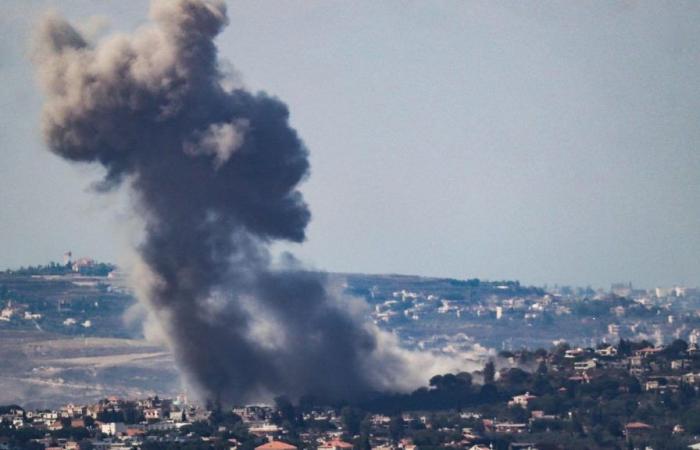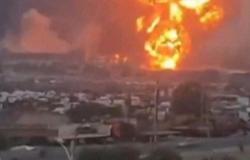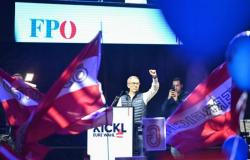The Israeli army announced on Sunday that it was carrying out “dozens” of new raids against Hezbollah in Lebanon, two days after killing the powerful leader of the pro-Iranian movement Hassan Nasrallah by bombing the southern suburbs of Beirut.
It said it had “attacked dozens of terrorist targets”: rocket launch sites, military installations and weapons depots. Since Saturday, hundreds of targets have been struck, according to the same source.
Hezbollah, a powerful armed movement allied with Palestinian Hamas at war against Israel in the Gaza Strip, confirmed on Saturday the death of its charismatic leader Hassan Nasrallah in an Israeli bombardment of incredible power on Friday on its stronghold near Beirut.
The death of the man who was considered the most powerful man in Lebanon constitutes a major victory for Israel against Iran and its allies, but plunges the region into the unknown.
“We have settled our scores with the person responsible for the murder of countless Israelis and many citizens of other countries,” said Israeli Prime Minister Benjamin Netanyahu.
“The line” of Nasrallah “will continue and its sacred objective will be achieved with the liberation of Jerusalem,” Tehran promised for its part.
Several Hezbollah executives were killed alongside Hassan Nasrallah in the operation called “New Order,” Israel said.
“Most” of the organization’s senior leaders were killed in Israeli operations in recent months, according to Israel.
At the head of Hezbollah since 1992, Hassan Nasrallah, 64, was a man of religion who was the subject of a veritable cult of personality among his supporters, particularly within the Shiite Muslim community from which he came. For years he had lived in hiding and rarely appeared in public.
His cousin Hachem Safieddine, an eminent figure in Hezbollah, appears to be a potential successor.
Tehran requested an emergency meeting of the UN Security Council on Saturday evening to “take immediate and decisive measures to stop Israeli aggression and prevent dragging the region into all-out war”.
“Deeply concerned,” China called on Sunday for “immediate measures to calm the situation and prevent the conflict from spreading further, or even becoming out of control.”
33 people were killed and 195 others injured by Israeli strikes on Saturday in Lebanon, according to the Health Ministry.
Israeli bombings have thrown more than 200,000 people onto the roads in Lebanon and more than 50,000 have fled to neighboring Syria, the UN said.
“I didn’t even take clothes, I never thought we would leave like this, only to suddenly find ourselves in the street,” Rihab Naseef, 56, a resident of south Beirut, told AFP.
The World Food Program (WFP) announced on Sunday an emergency operation to provide food aid to a million people affected by the violence in Lebanon.
Financed and armed by Iran, Hezbollah was created in 1982 at the initiative of the Revolutionary Guards.
Despite the incessant blows carried out by Israel, the movement announced on Saturday that it had fired rockets against northern Israel, most of which were intercepted.
On Sunday, the Israeli military reported that about eight projectiles fired from Lebanon fell in open areas on the outskirts of Tiberias in northern Israel.
She also added that she had intercepted an “aerial target” coming from the Red Sea, where pro-Iranian Houthi rebels have claimed several attacks against Israel in recent months.
Warning sirens sounded overnight in several areas of northern Israel as well as in Jerusalem, according to the army.
They also sounded in Eilat, in the far south of the country, a city towards which the “Islamic Resistance in Iraq”, a nebula of pro-Iranian armed groups, claimed in supporting images to have launched a drone in the night.
“If, at this stage, Hezbollah does not respond with its arsenal of long-range precision missiles, we will conclude that it simply does not have the capacity,” said Heiko Wimmen, specialist in the region at International Crisis. Group (ICG).
“Either we are witnessing an unprecedented reaction from Hezbollah (…) Or its total defeat,” he adds.
Hezbollah opened a front against Israel at the start of the war in Gaza, triggered by the Hamas attack on Israeli territory on October 7, 2023.
After a year of sporadic exchanges of fire across the border, Israel launched a major bombing campaign against the Shiite movement in Lebanon almost a week ago.
Israel claims to be acting to stop Hezbollah’s fire towards the north of its territory and thus allow the return of tens of thousands of residents forced to flee.
At the same time, it continues without respite its offensive against Hamas in the Gaza Strip where at least six people were killed in strikes in Gaza City, Jabalia (north) and Nousseirat (center), according to Civil Defense in the besieged Palestinian territory.
The Hamas attack of October 7, 2023 led to the death of 1,205 people on the Israeli side, the majority of them civilians, according to an AFP count based on official Israeli data and including hostages who died or were killed in captivity in the strip. from Gaza. Of the 251 people taken as hostages on October 7, 97 are still being held in Gaza, 33 of whom were declared dead by the Israeli army.
At least 41,586 Palestinians have been killed in the Israeli military campaign of retaliation on the Gaza Strip, the majority civilians, according to data from the Hamas government’s Health Ministry for Gaza, deemed reliable by the UN.






